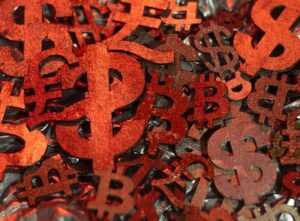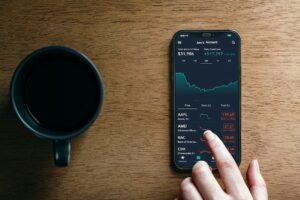Forex Trading vs Stocks Trading: Which One Is More Volatile?
Volatility is a key factor that traders consider when deciding which market to trade in. It refers to the degree of price fluctuation in a particular market. The more volatile a market is, the higher the potential for profits, but also the risk of losses. In this article, we will compare the volatility of forex trading and stocks trading to help you understand which market may be more suitable for your trading goals.
Forex trading, also known as foreign exchange trading, involves buying and selling currencies. It is the largest and most liquid financial market in the world, with an average daily trading volume of over $6 trillion. Stocks trading, on the other hand, involves buying and selling shares of publicly traded companies. It takes place on various stock exchanges globally, such as the New York Stock Exchange (NYSE) and the London Stock Exchange (LSE).
One of the main reasons why forex trading is considered more volatile than stocks trading is the high leverage available in the forex market. Leverage allows traders to control larger positions with a smaller amount of capital. For example, a leverage of 1:100 means that for every $1 in your trading account, you can control $100 in the forex market. This amplifies both potential profits and losses.
In stocks trading, the leverage is typically much lower. Most brokers offer leverage ratios of 1:2 or 1:3 for stocks trading. This means that for every $1 in your trading account, you can control $2 or $3 worth of stocks. The lower leverage in stocks trading reduces the potential for extreme price movements and therefore, volatility.
Another factor that contributes to the volatility of forex trading is the 24-hour trading cycle. The forex market operates continuously from Monday to Friday, allowing traders from all over the world to participate at any time. This means that news and economic events from different countries can have an immediate impact on currency prices. As a result, the forex market can experience sudden and significant price movements, especially during major economic announcements.
In contrast, stocks trading is limited to the trading hours of the respective stock exchanges. For example, the NYSE is open from 9:30 am to 4:00 pm Eastern Time. Outside these hours, there is no trading activity in the stock market. This restricted trading time can lead to less volatility compared to the forex market, as there is a limited window for new information to be incorporated into stock prices.
Central bank interventions can also contribute to the volatility in the forex market. Central banks, such as the Federal Reserve in the United States or the European Central Bank, can influence currency prices through interest rate decisions or quantitative easing measures. These actions can cause sudden and sharp movements in currency pairs, making forex trading more volatile.
In stocks trading, central bank interventions are less common and have a more indirect impact on stock prices. While interest rate decisions can influence the overall market sentiment, they do not have an immediate and direct effect on individual stock prices.
However, it is important to note that volatility is not always a negative aspect of trading. High volatility can present opportunities for traders to profit from price movements. Traders who thrive on short-term price fluctuations may find forex trading more appealing due to its higher volatility.
On the other hand, stocks trading can offer more stability and long-term investment opportunities. Investors looking for steady returns and dividends may prefer stocks trading over forex trading, which is more suitable for active traders and speculators.
In conclusion, forex trading is generally considered more volatile than stocks trading. The high leverage, 24-hour trading cycle, and central bank interventions contribute to the significant price fluctuations in the forex market. However, volatility can be advantageous for traders who are skilled at managing risk and capitalizing on short-term price movements. Ultimately, the choice between forex and stocks trading depends on your trading style, risk tolerance, and investment goals.






